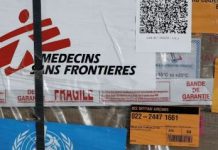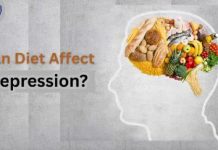Havana, Jan. 4 :As thousands in Cuba are set to return to work and school on Monday after Christmas break, the government strives to keep the COVID-19 pandemic in check amid a new surge in cases.
New statistics released by the health ministry shows that December 2020 has been the worst month in terms of the COVID-19 pandemic in Cuba, with more than 3,000 infections.
So far, 147 people have died from the virus nationwide as Cuba on Sunday registered 199 new COVID-19 confirmed cases, bringing the national count to 12,424.
Francisco Duran, national director of epidemiology at the Cuban Ministry of Public Health, urged people to be cautious and minimize the risk of COVID-19 contagion.
“Discipline is required to slow the spread of the virus,” Duran said, adding that the government has paid 100 percent of medical attention to infected patients, their contacts and suspected cases. “Our intensive care units for the treatment of the disease have never collapsed.”
Local authorities have called for parents to step up measures to protect their kids as more than 1,200 children and adolescents have been infected with the virus since the onset of the pandemic on the island in March.
Clara Judith Abrahantes, a 39-year-old mother living in Havana’s Camilo Cienfuegos district, told Xinhua that it is the paramount priority at present to keep safe from the virus.
“During the pandemic, parents have been thinking outside the box to raise awareness among kids about social distancing measures and COVID-19 protocols,” she said. “I always find time to talk to my son about the pandemic, trying to hold a fun conversation.”
Cuban state TV has reported that the island expects to use local COVID-19 vaccine doses to completely immunize its population during the first semester of the year.Although vaccination could help protect the Cuban population from the virus, Manuel Calvino, a senior professor at the University of Havana’s School of Psychology, said that it should not replace responsible behavior in regards to social distancing measures and safety guidelines.
“The COVID-19 pandemic has reinforced the idea that people are the key players to manage their health condition,” he said, adding “vaccination and self-care will lead to a substantial improvement of our health.”
“Most imported COVID-19 cases are Cuban nationals who come back home while the transmission rate among tourists who stay at hotels is low,” said Lissete Sanchez, a senior expert, during a recent governmental meeting.
The island reduced the number of flights from the United States, Mexico, Panama, the Bahamas, Haiti, and the Dominican Republic as of Jan. 1.
In addition, as of Jan. 10, Cuba will require tourists to have negative COVID-19 test results from certified health institutions.
Armando Ruiz, a taxi driver outside Havana’s Jose Marti International Airport, voiced confidence that Cuban people will continue to work hard to address the sanitary emergency.
“I feel fortunate not to have gotten infected with the virus. Life is too precious a thing to put it at risk,” he said. “We can win the battle against this terrible disease, if we want to.”











